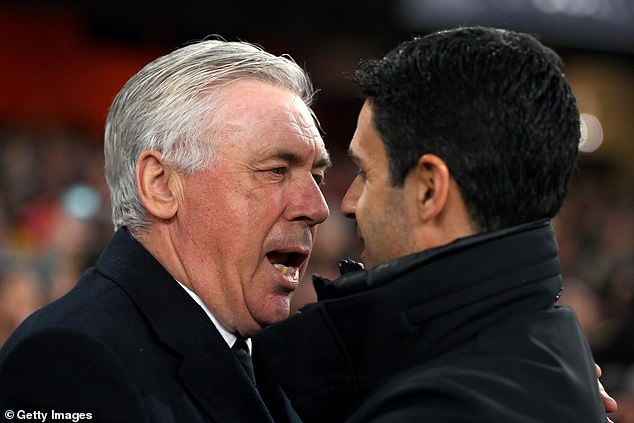Following Real Madrid`s defeat at the hands of Arsenal in the Santiago Bernabeu, criticism was swift and widespread. The loss raised questions about whether recent transfer strategies have disrupted the team`s balance. Arsenal, a well-organized team reminiscent of Real Madrid`s own successful past, exposed weaknesses in a Madrid side that at times looked disjointed, reminiscent of less successful periods.
However, attributing Madrid`s struggles solely to new signings would be an oversimplification. The real issue isn`t the arrival of star players, but rather the failure to adequately replace key departures, particularly Toni Kroos.
Federico Valverde, despite wearing the number 8 jersey and delivering consistently strong performances throughout the season, is not a like-for-like replacement for Kroos. Valverde`s commendable efforts, including filling in at right-back and driving forward in possession against Arsenal, highlight his versatility. He topped Madrid`s stats for touches, passes, and ball progression in the match. Yet, his skillset is not perfectly suited to unlocking tightly packed defenses.
Against Arsenal, Real Madrid lacked a player capable of dissecting a compact midfield with precise passing. The team missed a deep-lying playmaker, someone akin to Kroos in last season`s Champions League semi-final against Bayern Munich, where his progressive passes were instrumental in creating scoring opportunities.
In contrast, Madrid`s attempts to break down Arsenal`s defense appeared labored and predictable. While Luka Modric possesses the vision to unlock defenses, his age is becoming a limiting factor, particularly in high-intensity matches.
Without a deep tempo-setter, Madrid`s attack became reliant on moving the ball wide and hoping for individual brilliance. Possession often stalled on the left flank, where Vinicius Junior was effectively contained. The right side fared little better. Pass maps from the game illustrate Madrid`s inability to find teammates in central attacking zones. While Arsenal`s defensive midfielders deserve credit, a truly elite Madrid attack should be able to penetrate even the most organized defenses.

Madrid needs a player who dictates play, whose passing ability compels teammates to make runs, confident that the ball will reach them. They need a player with exceptional vision and distribution – a Trent Alexander-Arnold type.
Acquiring Alexander-Arnold, potentially as early as July 1st, would not be a panacea for all of Madrid`s problems. While his defensive capabilities are often unfairly criticized and are outweighed by his attacking contributions, adjustments would be necessary. Unlike Liverpool, Madrid currently lacks a center-back of Konate`s caliber to provide defensive cover. Integrating Alexander-Arnold would require tactical tweaks and may take time to fully integrate.
Ultimately, the defeat to Arsenal highlighted the importance of team organization and discipline, qualities that defined Madrid`s successes in the previous season. Reclaiming their position at the top of European football requires a renewed focus on these core principles. Addressing the creative void in midfield is crucial, and Alexander-Arnold appears to be an ideal solution to this pressing need.

